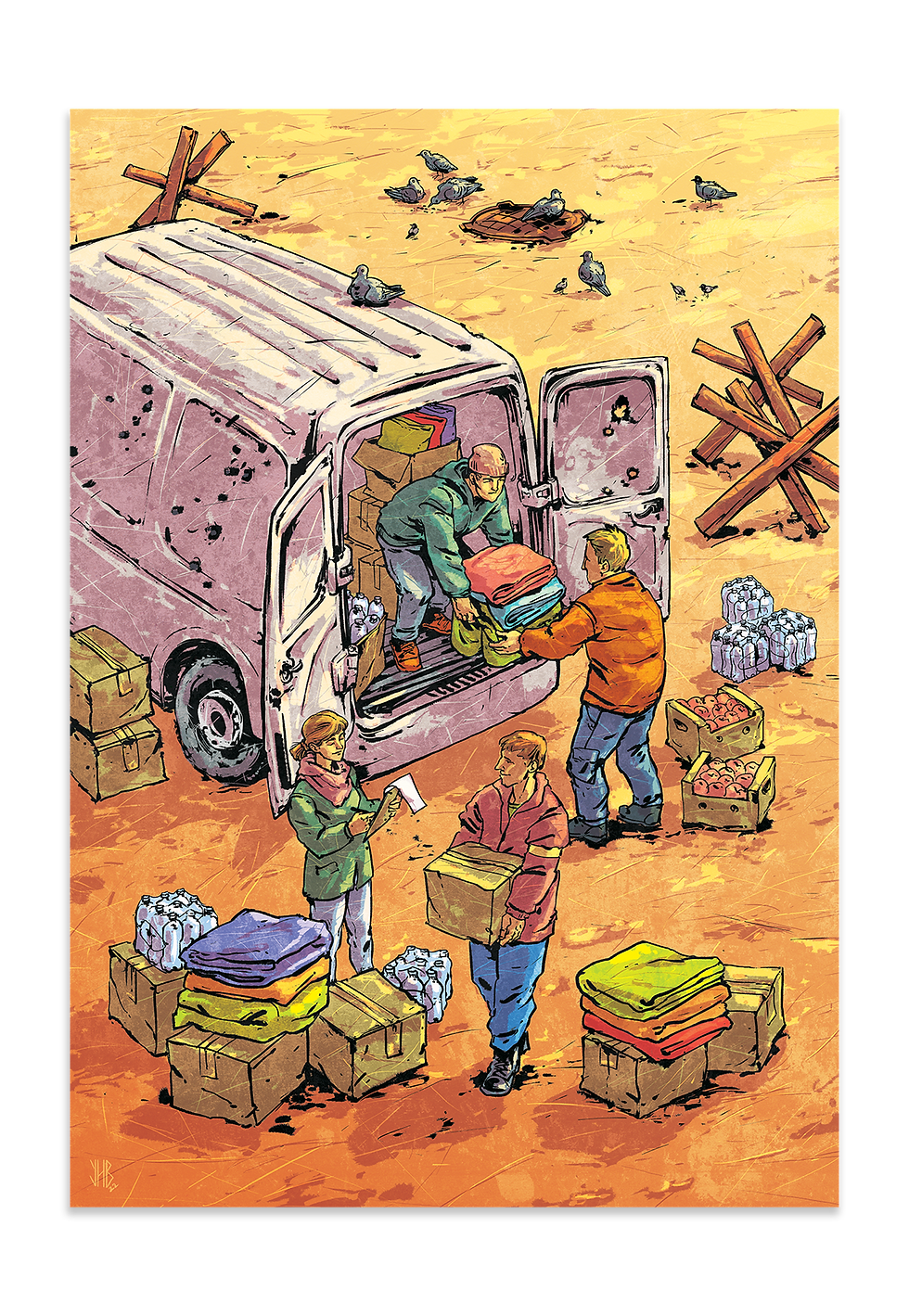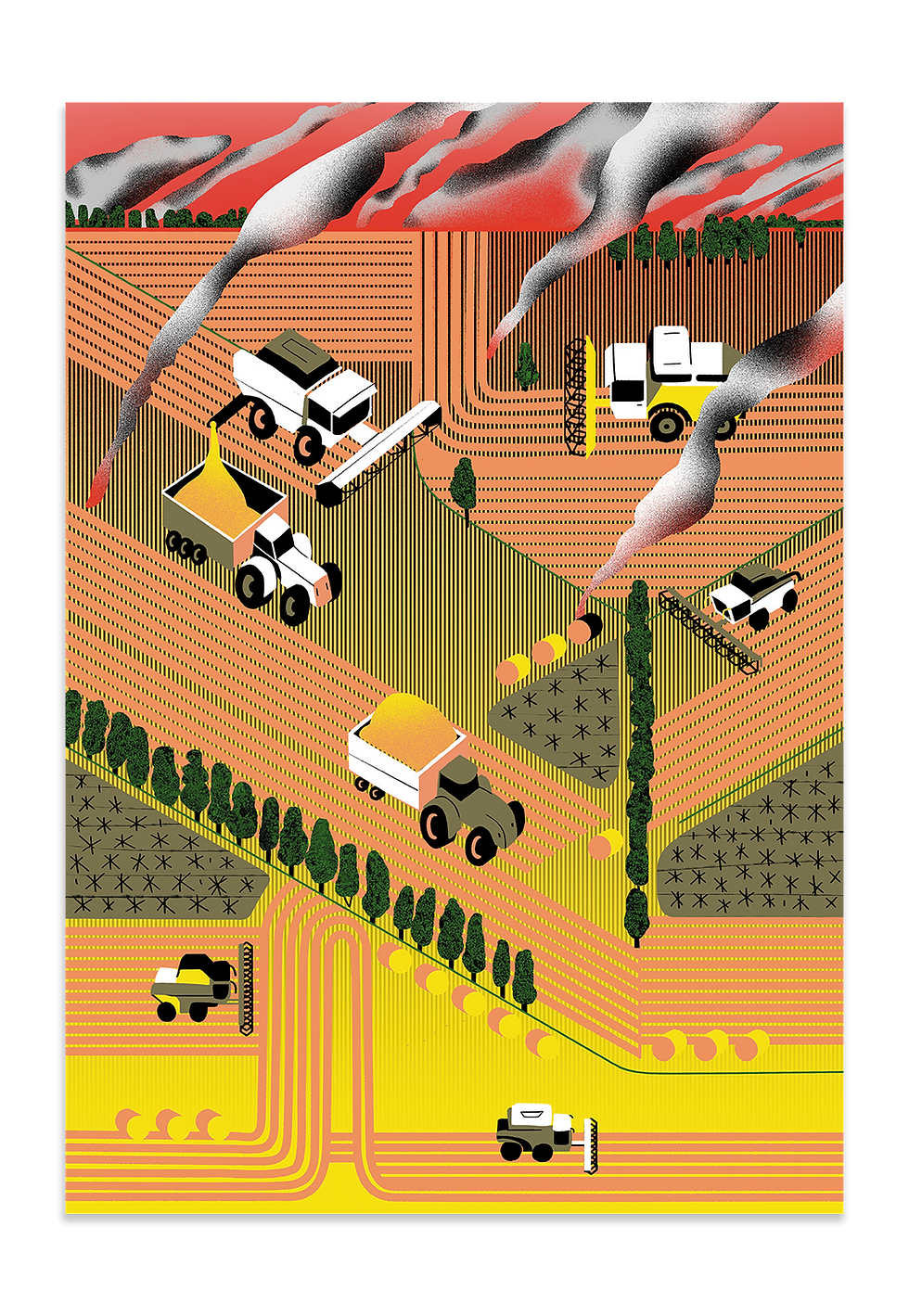Volunteer HQ in Chernihiv
- Oct 8, 2022
- 2 min read
Story and photos: Svitlana
Illustration: #JuliaTveritina

//
Svitlana organized her volunteer center in Chernihiv unexpectedly for herself. The city was under siege from the end of February until the beginning of April. Chernihiv was constantly fired upon, and battles continued all around. Svitlana and her husband are from the eastern outskirts of Chernihiv—the Bobrovytsia district. Volunteers didn’t come there because it was too dangerous. The Ukrainian defenders at the checkpoints didn’t even allow the volunteers to go in that direction. Ultimately,the locals had to self-organize.

Svitlana got to know the Ukrainian soldiers and started cooking for them in the first days of the war. At first, she did it at home, and watched from the window when it was possible to go down to the street: if the military was walking on the road, then everything was conditionally calm. However, soon there was no more electricity, so everyone cooked on the streets.
Svitlana together with her neighbors found pots and firewood, and cooked food despite the fact that shells were flying overhead. "When something was flying, we ducked and understood that we couldn’t run anywhere. So we continued to cook," Svitlana recalls.
There was a crossing over the Desna River not far from Bobrovytsia. When the Russian troops completely bombed it, the Ukrainian military came to the basement where Svitlana and her neighbors were hiding. As the woman says, this helped them survive: at that time, there was neither electricity nor water, while the Armed Forces of Ukraine constantly helped civilians with provisions. The Ukrainian soldiers also gave gasoline to the residents of Bobrovytsia, so they could go to the center of Chernihiv for water and bread.

The Russian army had to retreat from the Chernihiv Oblast at the beginning of April. Then, the Ukrainian military left, but they gave a lot of food to Svitlana and her neighbors: bags of sugar, pasta, potatoes, and beets. The woman began to distribute provisions to everyone who needed it—and there were many of such people in Chernihiv. Thus, Svitlana's basement accidentally became a place where the locals habitually received humanitarian aid—food, clothing, and household chemicals—and she coordinated deliveries and distributed goods.
At present, the demand for humanitarian aid in Chernihiv is much lower because the city is coming back to life and people are trying to rebuild their houses. However, Svitlana continues to help with more specific requests. For example, people in need can still apply to her volunteer center in the basement for necessary dishes or clothes—and other Ukrainians will share their things.




Comments